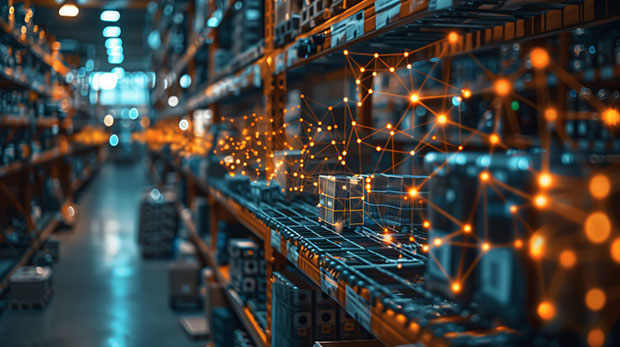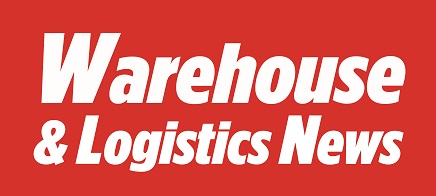The application of blockchain technology in supply chain management has expanded in the last five years, providing better transparency and traceability of data. Using a decentralised ledger, blockchain ensures that all transactions and product movements are accurately recorded and verified, providing better security and efficiency.

How does Blockchain work?
Blockchain records transactions across multiple computers to ensure security, transparency, and immutability. Each transaction forms a “block” linked in a “chain” using cryptography. This structure prevents alteration without consensus from the network, making blockchain tamper-resistant.
How Blockchain benefits supply chains
1. Transparency and Traceability
Blockchain offers visibility across the entire supply chain, recording every transaction and enabling better product tracking from source to destination. Immutable ledgers help trace issues back to their origin.
2. Improved Data Security
Centralised databases are vulnerable to cyberattacks and fraud, but blockchain’s decentralised nature enhances security. Data in a block cannot be altered without network consensus, preventing unauthorised access. 3. Efficiency and Cost Reduction
By automating processes such as payment verification and contract execution via smart contracts, blockchain reduces the reliance on intermediaries, resulting in faster transactions and lower costs.
4. Better Collaboration
Blockchain enables all supply chain parties to work on a shared ledger, improving communication and ensuring accurate data is available to all stakeholders.
5. Verification of Sustainable Sourcing
Blockchain can track and verify the origin of goods, ensuring they meet ethical and sustainability standards, such as fair trade and carbon-neutral requirements.
Who uses Blockchain?
Large organisations in the fast-moving consumer goods sector (FMCG: food-and-beverage, pharmaceutical) are using blockchain to trace the origins of their raw materials. Walmart and IBM use blockchain to track each supply chain step in real-time, enabling faster identification of problems like recalls. Maersk and IBM’s TradeLens platform uses blockchain to provide secure documentation of shipping processes, reducing paperwork fraud in global logistics. Provenance, a blockchain-based platform, allows brands to share verified data about their products with consumers and suppliers, fostering better collaboration and trust throughout the supply chain. The Responsible Sourcing Blockchain Network (RSBN) is used to track the ethical sourcing of minerals like cobalt, ensuring they are not mined using child labour or unsustainable practices. The fashion industry and rare earth minerals supply chains are examples of sectors adopting blockchain for sustainability.
Trends in blockchain implementation
Integration with other technologies
Blockchain combined with AI helps predict supply chain disruptions and optimise processes. IoT sensors feed real-time data into blockchain networks, crucial for industries like food safety and pharmaceuticals.
Regulatory Developments and Standardisation
Organisations like GS1 are working on global standards for blockchain use, ensuring interoperability across supply chains. Governments, including China’s Blockchain Service Network (BSN), integrate blockchain into various sectors to set standards and enhance transparency.
Smart Contracts
Blockchain automates processes through smart contracts, reducing intermediaries and speeding up operations like payments and customs clearance. Businesses can also tokenise assets for fractional ownership or inventory financing.
Blockchain-as-a-Service (BaaS)
Platforms like AWS and Microsoft Azure offer Blockchain-as-a-Service, making blockchain more accessible to small and medium-sized businesses. These solutions provide cost-effective ways to integrate blockchain without in-house expertise.
As businesses prioritise sustainability and customer trust, blockchain is expected to play a larger role in ensuring transparent, responsible supply chains. Its integration with IoT and AI will further enhance its ability to secure critical data.
While blockchain is gaining traction in the supply chain world, at SCCG, our consultants focus on helping businesses optimise their operations with proven solutions such as automation, data-driven insights, and process enhancements. Send your enquiry to info@sccgltd.com or give us a call at +44(0)1926 430 883.





Comments are closed.